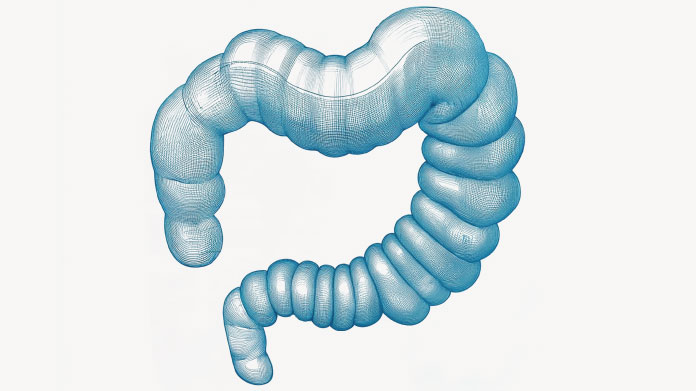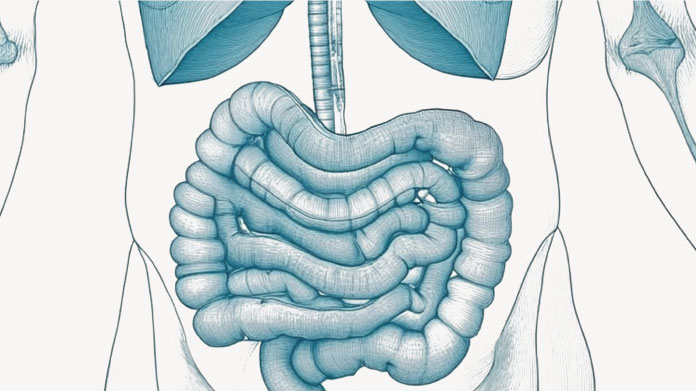Could your stomach ache be caused by the bacteria Helicobacter pylori?
Have you heard of the bacteria Helicobacter pylori? Perhaps not, as awareness of this pathogen is far from widespread, despite it being responsible for many cases of stomach ache. Indeed, around 50% of us may be harbouring this germ which is believed to be the principal cause of gastro-duodenal ulcers.

Where does Helicobacter pylori grow?
For a long time, it was thought that no bacteria could survive the acidity of the stomach. However in 1982, two Australian scientists were surprised to discover that the bacteria Helicobacter pylori (H. pylori) was indeed able to withstand the effects of gastric juices. This bacteria forms part of the Helicobacter genus because of its external, corkscrew-like, helicoidal structure. The term pylori refers to the pylorus where the stomach meets the small intestine.
How does Helicobacter pylori survive in the stomach?
The scientists who discovered Helicobacter pylori in the human stomach were actually awarded the Nobel prize for physiology and medicine in 2005. Following this major advance, further research has expanded our understanding of the mechanism responsible for its development. Its very specific structure means it is able to penetrate the stomach’s mucus and mucosa. Once there, H. pylori produces significant amounts of an ammonia-producing enzyme called urease, which enables it to survive in the gastric mucosa.
What are the consequences of H. pylori infection?
As well as secreting urease, Helicobacter pylori produces toxins which damage the stomach, weakening the gastric mucosa and leaving it vulnerable to attack by gastric juices. They may also increase gastric acid production which encourages the development of chronic inflammation in the stomach, manifesting in frequent stomach pain.
What is the risk of complications from H. pylori infection?
In some cases, the gastritis caused by H. pylori can result in a gastroduodenal ulcer, a deep lesion in the stomach wall (gastric ulcer) or intestinal wall (duodenal ulcer). Helicobacter pylori infection is now considered the leading cause of gastroduodenal ulcers. In rare cases, it can contribute to the development of stomach cancer (gastric adenocarcinoma).
Who is affected by this infection?
It’s estimated that half the world’s population may be infected by the bacteria H. pylori. Though contamination happens more frequently in childhood, Helicobacter pylori infection can remain asymptomatic and undiscovered for many years. A significant number of people are thus living with this bacteria without realising it.
How do you recognize and diagnose infection by H. pylori ?
It can be difficult to diagnoseHelicobacter pylori infection - medical tests are needed to confirm the presence and growth of this bacteria. There are, however, certain warning signs such as persistent, increasingly frequent stomach aches, abdominal pain accompanied by bloating, and nausea with loss of appetite.
How is H. pylori infection treated?
Helicobacter pylori is normally treated with antacid-based triple therapy, aimed at reducing gastric acid production and limiting damage to the gastric mucosa. This tritherapy usually includes a proton pump inhibitor (PPI) and two antibiotics. In some cases, quadri-therapy with a PPI and three antibiotics may be used. Unfortunately, more and more cases of antibiotic resistance are being reported. The bacteria H. pylori is mutating and becoming resistant to antibiotics.
Are natural treatments available?
In view of this growing antibiotic resistance, a number of studies have highlighted the benefits of natural treatments for combatting gastritis and ulcers. Widely-studied, liquorice extractHelicobacter pylori: mastic gum. This natural gum has been used for thousands of years as a remedy for stomach aches and as an antiseptic. Studies show that this extract may inhibit or kill certain bacteria, including H. pylori.
How can you prevent infection by H. pylori?
The above-mentioned liquorice extract and mastic gum can also be used in a preventive capacity. Their activity is particularly useful in helping to protect the gastric mucosa from attack by H. pylori. Improving digestive transit may also be beneficial for prevention given that good digestive transit encourages the elimination of toxins including those produced by Helicobacter pylori. Alongside a balanced diet and healthy lifestyle, certain dietary supplements can help to maintain good digestive transit. One such supplement is psyllium seed husk, which contains a large quantity of soluble fibre, and probiotics, microorganisms recognized for their beneficial effects on the digestive system.
Keywords
2 Days
Solid
Fast, affordable, effective.
Buyer
3 Days
The supplements made an immediate…
The supplements made an immediate impact on my microbiome. I love it.
JOHNSON Stephen
4 Days
SUPERSMART WEIGHT LOSS BOOSTER
SUPERSMART IS A GREAT CO- MPANY, GREAT PRICES,IT'S SO VERY EASY TO GET A HOLD OF AND, I RECEIVED MY ORDER IN SUCH A VERY SHORT TIME,AND BECAUSE OF THAT,I AM ALREADY LOSING WEIGHT! IT'S MAKES FOR A GREAT DAY WHEN I WEIGH MY- SEF AND I FIND OUT THAT I HAVE LOST A COUPLE OF MORE PO- UNDS.I ALSO DO THE "SPEED UP YOUR METABOLISM TRICK",WH- ERE YOU DIET ONE DAY AND ARE OFF THE NEXT,AND YOU DRINK DIET GREEN TEA AND AND EAT "DIET TYPE " OF MEALS.IT DOES HELP.I ALSO TRY TO EAT FOODS THAT "BURN CALORIES" ON "DIET DAYS".
PERFUMO Irene L
4 Days
The package arrived in good condition
The package arrived in good condition. It is too soon to say how effective the S-Acetyl-Glutathione is as I have taken only 1 capsule.
WRIGHT Connie
7 Days
Great people
Great people, friendly, helpful and competent!
WHITEHILL Claude Steven
9 Days
Ease of ordering and customer service.
Ease of ordering and customer service.
CARTER Rhonda
14 Days
Good product
Good product, value and price. Arrived ahead of promise.
El Capt
16 Days
Excellent products
Excellent products. High quality and outstanding customer service! Thank you!
BUISSON Laurence
18 Days
Very quick shipping and…
Very quick shipping and deliveries.Customer service is also quite efficient.
Norman
26 Days
Fast shipping
Fast shipping, fair prices.
Yelgnit
27 Days
ABOVE & BEYOND
Great product, received in a timely manner…thank you
DOMINIC
27 Days
BUYING IN SUPER SMART IN U.S.
There were some problems buying a subsidiary in the U.S., but in the end, I did it!
MENDEZ TELLEZ GIRON Jose
28 Days
Amazing products
Amazing products ! I recommend 100%
BLASIAK Pierre
29 Days
They have what I need
I was able to buy a supplement that is very difficult to find in US, so it makes me happy! The website is easy to navigate. Fast and free shipping (over $25)
Eva
34 Days
Good all around service with a few…
Good all around service with a few hiccoughs.
PODLAHA Helmut



